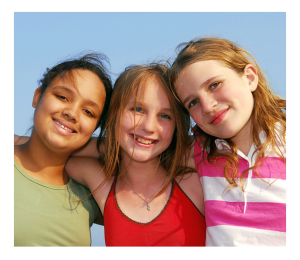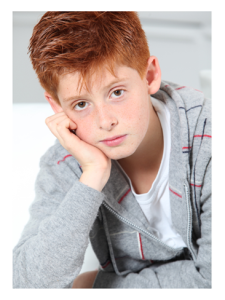We went round and round, as we often do, drawing from our own experiences of what we did right – and not so right – as parents.
 We were talking about kids, their sexual education, what they see online, what is or isn’t “pornography.”
We were talking about kids, their sexual education, what they see online, what is or isn’t “pornography.”
He compared interpretations based on his upbringing with one foot in Europe and the other in the States; I did likewise, though my French experience came in my teenage years, layered over a contradictory foundation of New England liberalism cum conservatism – particularly regarding sex.
Yet as a mother, when my children asked questions, I did my best to answer – at each stage, tailored to each of my sons.
As is the case for many of us on this score, I wanted to do better than my parents. When I was a child, I learned about sex from my friends, and thought none of it made any sense. Then again, I was a fairly nerdy kid; I didn’t see my first X-rated film until college, and I remember it distinctly – going with girlfriends, unable to stomach remaining in the theater, leaving with an “oooo gross” and at the time, having no comprehension of what anyone, male or female, might see as pleasant in what we had just witnessed.
How to Protect Kids from Pornography
As for how and when to talk to kids about sex, how to manage the “oooo gross” that arrives on scene courtesy of the Internet, how to protect our children from pornography not to mention what we define as such, my gregarious companion and I landed squarely in a somewhat ambiguous but similar X Marks the Spot.
Although we covered the theoretical protections online that are reasonable (or feasible) for kids, the only weapons to effectively combat misconceptions about sex bring us back to parents and education. As for the misconceptions (and attitudes we would like to reinforce), these include associations of sex and violence, matters of sex and responsibility, sexual roles, sex as pleasurable, sex as reciprocal, and also, body image as we inevitably compare ourselves to what we see in all our media.
If you’re wondering what prompted this mini-debate, it was a Times column on trying to stem the tide of pornography access to children and adolescents. In “Does Porn Hurt Children,” David Segal references UK moves to restrict sexually explicit sites via the Internet Service Provider, requiring online users to “opt in” rather than filtering out what they consider inappropriate viewing.
Are We Worried About Porn or Sex?
I have mixed feelings on the Big Brother aspects involved in any prohibitions regarding adult viewing habits. Consenting adults, in my opinion, should be left to enjoy what suits them – as long as no one is hurt, in particular, children.
 And as for children, I prefer that any filters to sexual material remain in the hands of parents – not that I’m convinced they actually work.
And as for children, I prefer that any filters to sexual material remain in the hands of parents – not that I’m convinced they actually work.
For very young children? Sure. But we hand out iPads in elementary schools now. Do we really think they aren’t being used when off-site? Shouldn’t we assume the older sibling will find a way to stream (and show) whatever he or she pleases?
Naturally, I think porn and kids don’t mix. Who wouldn’t? And as the article suggests, the gray area comes in as our children approach adolescence, especially now that they’re interconnected through social media and texting, and all too oblivious to the impacts of sending images back and forth.
Certainly, if we can delay exposure to sexual visuals until adolescents are more developmentally ready, yet another area of ambiguity and argument, we can potentially lay the groundwork for treating each other respectfully. We may also have a better shot at clarifying sex versus lovemaking, and the emotional aspects of our sexual lives.
But I have questions: Are we concerned about porn or concerned about sex? And shouldn’t we, the parents, be talking to our kids about both – and more?
Going Dutch
I note that we don’t seem to be able to establish much more than what common sense might dictate.
… suggesting that teenagers and pornography are a hazardous mix is far from definitive. In fact, many of the most comprehensive reports on this subject come to conclusions that amount to “we can’t say for sure”…
However,
… Among the most prolific and revered researchers to examine teenagers and pornography is a duo in the Netherlands, Jochen Peter and Patti M. Valkenburg…
They found… “when teens watch more porn they tend to be more dissatisfied with their sexual lives. This effect is not really a strong effect, though. And teens with more sexual experience didn’t show this effect at all.”
There are other remarks relative to casual sex and lack of causality, which you may find of interest in the article.
Ambiguities and Caveats
 Citing caveats to the Dutch findings, especially if we try to extrapolate beyond the Netherlands, we are instructed to note cultural differences. In the Netherlands, parents do not hide their heads in the sand when it comes to teenage sex. Rather, they focus on the need for it to be safe – emotionally and physically.
Citing caveats to the Dutch findings, especially if we try to extrapolate beyond the Netherlands, we are instructed to note cultural differences. In the Netherlands, parents do not hide their heads in the sand when it comes to teenage sex. Rather, they focus on the need for it to be safe – emotionally and physically.
We know full well that we take a different approach in the US. We are more likely to forbid, to shame, to condemn – none of which alters the questions our children will have or the very natural curiosity about their changing bodies.
As for pornography, however you may define it, I think we’d all agree that we want to protect our kids from what is harmful. And we don’t want the “oooo gross” factor (and worse) anywhere near our 6-year-olds, our 8-year-olds, our 10-year-olds. Sounding (surprisingly?) old school, I will say that it’s troublesome enough at 13. Then again, I doubt we would agree on what is “gross” versus what is natural, or the particulars of introducing the subject, preferably from an early age in “appropriate” ways.
Talking to Kids About Sex
So what assumptions do we make about sexually explicit material that will be viewed elsewhere, if not in our homes? What assumptions do we make about kids and sex? What do we hope for their experience, as influenced by our value systems?
The article offers this, with which I agree:
… At a minimum, researchers believe a parent-teenager conversation about sexuality and pornography is a good idea…
At a minimum, indeed, and surely not a single conversation under the guise of the birds and the bees. This leads us back to the parental conundrum that my friend and I were discussing and our responsibility to determine what to say, when to say it, and how to counterbalance what our children will eventually see on the web.
And if you say they won’t – I’ll say you’re naive. It’s a matter of when, not if.
You May Also Enjoy
I find it difficult to write a comment here as I think the topic warrants a five thousand word essay. I note the contradiction in society where we collectively express our concern if not outrage over the availability of pornography but do not support sex education in schools or have open and honest talks with our children. (We’re embarrassed.) In other words, we leave our children to fend for themselves then turn around and blame porn and our children’s efforts to educate themselves.
I also note that our puritanical society is more afraid of sex than violence. If on TV person A murders person B, we have no qualms about letting our children watch. However, if person A makes love with person B, my God, we’re all going to hell in a handcart. Make war not love. Geesh, how perverted is that?
A TV network censored a sequence of John Steinbeck’s The Red Pony, which showed a mare giving birth, but broadcast the rather hideous sequence from The Godfather showing a beheaded horse.
–Youth, Sex and the Media, CyberCollege
“Teenagers become dissatisfied with sex” The sky is falling? A lot of adults are dissatisfied with sex. (How many are dissatisfied with life?) Watch a movie and get the idea everybody else is having more fun. Inexperienced teenagers having sex with other inexperienced teenagers: now there’s recipe for disaster/dissatisfaction.
Okay, that’s two hundred words. I’ll shut up now.
All the best to you in your world.
Five thousand words? Try a 5-book series, at least.
My own coverage of the topic is superficial at best. And I agree that the contradictions in our cultural (lack of) reasoning are glaring.
People will never learn. My housekeeper has 4 children, all teen or thereabout. One girl. The 16 year old darling girl is now pregnant & says she will keep the child. Her mother told me “I didn’t talk to her because I thought the school would.” I thought, “well her life is ruined.” She had plans to become an RN and those dreams are now over.
I have an almost 15 year old son and I think about this almost daily. He stays in his room on his laptop for hours (but to be fair, he also hangs with me for hours sometimes) and porn is there for all the world to see. But it is also available on his ipod and phone. I try to talk to him but more often it turns into a joke, it seems to be all the two of us can handle when talking about sex. For instance, when I walk upstairs and he is on his laptop in his room, I yell, “what are you watching, porn?” He says, “Nooo Mom!” Then I say, “Good, because that isn’t what real sex is like. If you try that with a girl she is going to have you arrested.” He says, “Oh. Okay. I don’t want to talk about it.”
Just last night (he was with his dad) he sent me a text and asked if I watched the premiere of Game of Thrones. I texted back, “I did! You must have loved it, it was full of boobs.” He said “Not as much as some times” and I said, “Just remember, boobs are boobs, half of the world has them.” He texted back, “Now I’m watching River Monsters, but okay.”
I’m just using all of the tricks I have to tell him that real sex isn’t like porn and to make it light enough that maybe he will hear me without being horrified.
With my daughter, age 12, I try to talk more seriously when I am talking to her about her body changes, but she gets so embarrassed, it’s hard!
I agree with WQB, that people think nothing about showing violence on TV, heads blown off, etc, but nudity is still taboo. FYI, I am not embarrassed to talk about sex, I have to talk frankly with people about private matters daily, but the kids would rather DIE than discuss it with me, so I try to stay on their level with it and hope something sinks in.
Sex ed…. No time for the book writing here. Get a book (books for different ages) to help you along with it. Make it natural — let them know that parents do it (that’s how they were started). Distinguish sex from violence and what the media exhibits. Our culture is sick on the topic of sex. Actually, our culture/government is sick in many ways (don’t get me started or I’ll talk about yesterday’s Good Friday CD arrest again, or April 15 redirection of war taxes). I probably said more about sex than my kids were willing to talk about when they were young. I remember when I spoke about a girl friend I had, and one of my children asked if I paid her 🙂 If they were a bit embarrassed, I just plowed ahead. I am grateful that they all appear to be happily leading their own lives and have a great time at our family get-togethers.